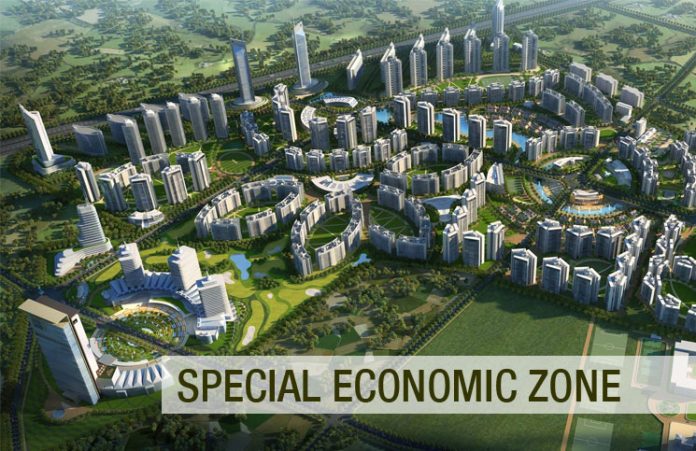ISLAMABAD: Government has finalised the draft of a package of incentives for special economic zones (SEZs) of China-Pakistan Economic Corridor (CPEC), which will be tabled in upcoming 7th Joint Cooperation Committee (JCC) on CPEC for necessary approval, it was learnt.
Sources in Board of Investment (BoI) informed Pakistan Today that the government has finalised a package of incentives for SEZs of CPEC which will be presented in next JCC on CPEC to be held on November 21, 2017 in Islamabad. They said the upcoming JCC is likely to give a unanimous approval to the package for SEZs on CPEC. And, these SEZs will be set up in all four provinces and special areas of Pakistan within in next two to three years, sources added.
“Announcement of the incentive package for SEZs on CPEC will be announced by the government after the grant of necessary approval from both sides-China & Pakistan,” said the sources.
Sharing details of the proposed incentive package for SEZs on CPEC, sources also told that there would be exemplary tax exemptions for the investors, while the incentives once granted cannot be withdrawn or modified to the disadvantage of investors. Similarly, there would be incentive of tax exemption for over ten years for the import of plants and machinery, also the income to be earned from them during ten years period will be given exemption from the taxes. More, land occupation will be immediately made available to the investors of SEZs after 50 per cent down payment. Water, electricity, gas etc facility will also be ensured to the investors, sources added.
Sources also said that these economic zones are planned to be established under CPEC in all the four provinces, FATA, Azad Kashmir, Gilgit-Baltistan, and the Federal Government in Islamabad Capital Territory and Port Qasim at Karachi to take advantage of Pakistan’s natural resources.
Available documents of Board of Investment disclosed to this scribe the financial incentives for the investors of SEZs. For developers, one time exemption from all custom duties and taxes on plant and machinery imported into Pakistan for the development, operation and maintenance of the SEZs and exemption from all taxes on income accruable in relation to the development and operation of the SEZs for a period of five years, starting from the date of signing of the development agreement. More, for zone enterprises, one time exemption from all custom duties and taxes on imports of plant and machinery into the SEZs for installation therein besides exemption from all taxes on income for a period of ten years to units starting production by June 20, 2020 and five years for those doing so after June 30, 2020.
Documents also transpire a list of incentives for investors of SEZs that include bulk supply of electricity and gas, one window facility, renting out industrial sheds etc.
According to documents, land to industries will be made available to the investors of SEZs against 50 per cent down payment, rest in four biannual installments. Inland freight subsidy at 50 per cent for transportation of machinery from port to the SEZs, mark up support at 50 per cent of mark up (to the extent of 5 per cent and on loans in Rs), said documents.
Pakistan had already devised a comprehensive plan to set up special economic zones (SEZs) across four provinces and special areas under the China-Pakistan Economic Corridor (CPEC) to boost industrial production.
It is worth mentioning that all incentives are proposed to be granted under SEZ Act 2012. The SEZ Act 2012 provides the governing structure for these zones and allows both federal and provincial governments to set them up under various administrative frameworks.
The idea of SEZ first started in New York in 1937. As per SEZ Act of Pakistan, “Special Economic Zone (SEZ) is a blanket term for various types of specialised zones with specific types of enterprises operating in a well-defined geographic area where certain economic activities are promoted by a set of policy measures that are not generally applicable to the rest of the country. Successful SEZs offer immediate access to high-quality infrastructure, uninterruptible power supply, clearly titled land, public facilities, and support services.”
























